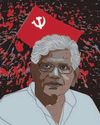
In 2017, two companies partly owned by rubber farmers in rural Kerala exported sheets of natural rubber to a manufacturing company in São Paulo, Brazil's commercial capital. In money terms, it was a low-value, low-volume deal-around 60 metric tonnes worth around 1 crorebut in terms of historical significance, it was rather big.
A bit of backstory first: Brazil is the home of rubber, because of which the tree that yields natural rubber is called Hevea brasiliensis. In the 19th century, the rubber tree grew only in the Amazon rainforest, which helped Brazil nearly monopolise the global rubber market. The British, ardent free-marketeers when faced with monopolies not their own, dispatched an explorer named Henry Wickham in the 1870s. Wickham collected around 70,000 rubber seeds from groves in Amazon and smuggled them to the Royal Botanical Garden in London. The 'theft' helped the British jump-start cultivation in colonies in Southeast Asia, effectively ending Brazil's dominance. Within decades, cheap but good-quality rubber from fledgling Asian plantations finished off the Amazon wild rubber industry.
In short, the consignment from Kerala to São Paulo was sort of a homecoming. The deal also reflected the vagaries of the modern international commodity market-much like the Arabs who have to import sand from Europe and Australia (because wind-blown desert sand is too fine for construction), Brazilians have to occasionally depend on rubber farmers who are half a world away in Kerala.
This story is from the {{IssueName}} edition of {{MagazineName}}.
Start your 7-day Magzter GOLD free trial to access thousands of curated premium stories, and 9,000+ magazines and newspapers.
Already a subscriber ? Sign In
This story is from the {{IssueName}} edition of {{MagazineName}}.
Start your 7-day Magzter GOLD free trial to access thousands of curated premium stories, and 9,000+ magazines and newspapers.
Already a subscriber? Sign In

A golden girl
One of India's most formidable beauties passed away earlier this month. The odd thing is she would absolutely hate this obituary; she hated being written about and avoided publicity for all of her nine decades. Indira Aswani was 93 when she died. But anyone who encountered her, even briefly, was in such awe of her grace and poise, and one could not but remember her forever.

The interest in wine is growing delightfully in India
The renowned British wine writer and television presenter Jancis Robinson, 74, recently came to Delhi and Mumbai to reacquaint herself with India's wine industry. This was the Robinson's fourth visit to India; the last one was seven years ago. On this trip, Robinson and her husband, restaurateur Nicholas Lander, were hosted by the Taj Hotels and Sonal Holland, India's only Master of Wine.

United in the states
Indian-Americans coming together under the Democratic umbrella could get Harris over the line in key battlegrounds

COVER DRIVE
Usage-driven motor insurance policies offer several benefits

GDP as the only measure of progress is illogical
Dasho Karma Ura, one of the world's leading happiness experts, has guided Bhutan's unique gross national happiness (GNH) project. He uses empirical data to show that money cannot buy happiness in all circumstances, rather it is family and health that have the strongest positive effect on happiness. Excerpts from an interview:

India is not a controlling big brother
Prime Minister Tshering Tobgay considers India a benevolent elder sibling as the \"big brotherly attitude\" is happily missing from bilateral ties. He thinks the relationship shared by the two countries has become a model of friendship not just for the region, but for the entire world. \"India's attitude is definitely not of a big brother who is controlling and does not allow the little brother to blossom and grow,\" says Tobgay in an exclusive interview with THE WEEK.

Comrade with no foes
Lal Salaam, Comrade Yechury-you were quite a guy!

Pinning down saffron
In her first political bout, Vinesh Phogat rides on the anti-BJP sentiment across Haryana

MAKE IN MANIPUR
Home-made rockets and weapons from across the border are escalating the conflict

SAHEB LOSES STEAM
Coalition dynamics and poor electoral prospects continue to diminish Ajit Pawar's political stock